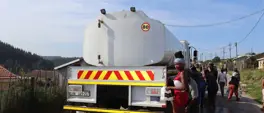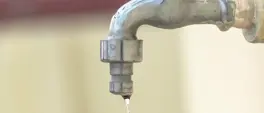Festive season meat supply under threat if government doesn't act, warns AMIE
Paula Luckhoff
9 October 2024 | 18:20The Association of Meat Importers and Exporters says new inspection regulations have led to lengthy delays at our ports.
The Association of Meat Importers and Exporters (AMIE) has warned that revised requirements from the Border Management Agency (BMA) are causing delays that could impact South Africa's meat supply over the coming festive season.
AMIE has called for government intervention to resolve delays at our ports, attributed to the more stringent inspection regulations.
At the heart of the problem is the issuance of meat import removal permits, a process the Association says used to take 48 hours, but is now taking 8 - 9 days.
"To avoid further damage to the economy and food supply chain, AMIE is calling for urgent intervention from the BMA."
"The association recommends either increasing the capacity for inspections or reverting to the previous system until adequate resources are in place to handle the increased workload."
Association of Meat Importers and Exporters
Ports were already congested before the new measures were introduced at the beginning of the year, AMIE SA CEO Imameleng Mothebe points out.
While the industry acknowledges the importance of government regulations, when these are implemented without the necessary capacity they can have disastrous unintended consequences, she says.
In conversation with Stephen Grootes, Mothebe illustrates how red tape, literally, is slowing operations to a crawl.
"At the beginning of they year, for example, the BMA introduced that containers cannot be opened by their importer unless the inspector is there for the seals to be broken."
"If that doesn't happen the whole container will be rejected, so it's a critical step in the approval process of imported meat products."
Imameleng Mothebe, CEO - Association of Meat Importers and Exporters SA
In the case of a police official breaking seals for their own inspection purposes before MBA inspectors arrive, that shipment will also be rejected.
Every day that containers are left standing has financial implications for the importers she says, as they wait for these inspectors to become available.
And these costs will inevitably be passed on to the consumer.
"One of our biggest concerns is that with the peak season upon us were expecting huge volumes of containers to come in and we're not certain what informs the volume of inspections on containers."
Imameleng Mothebe, CEO - Association of Meat Importers and Exporters SA
For more from Mothebe, listen to the interview audio at the top of the article
Get the whole picture 💡
Take a look at the topic timeline for all related articles.













